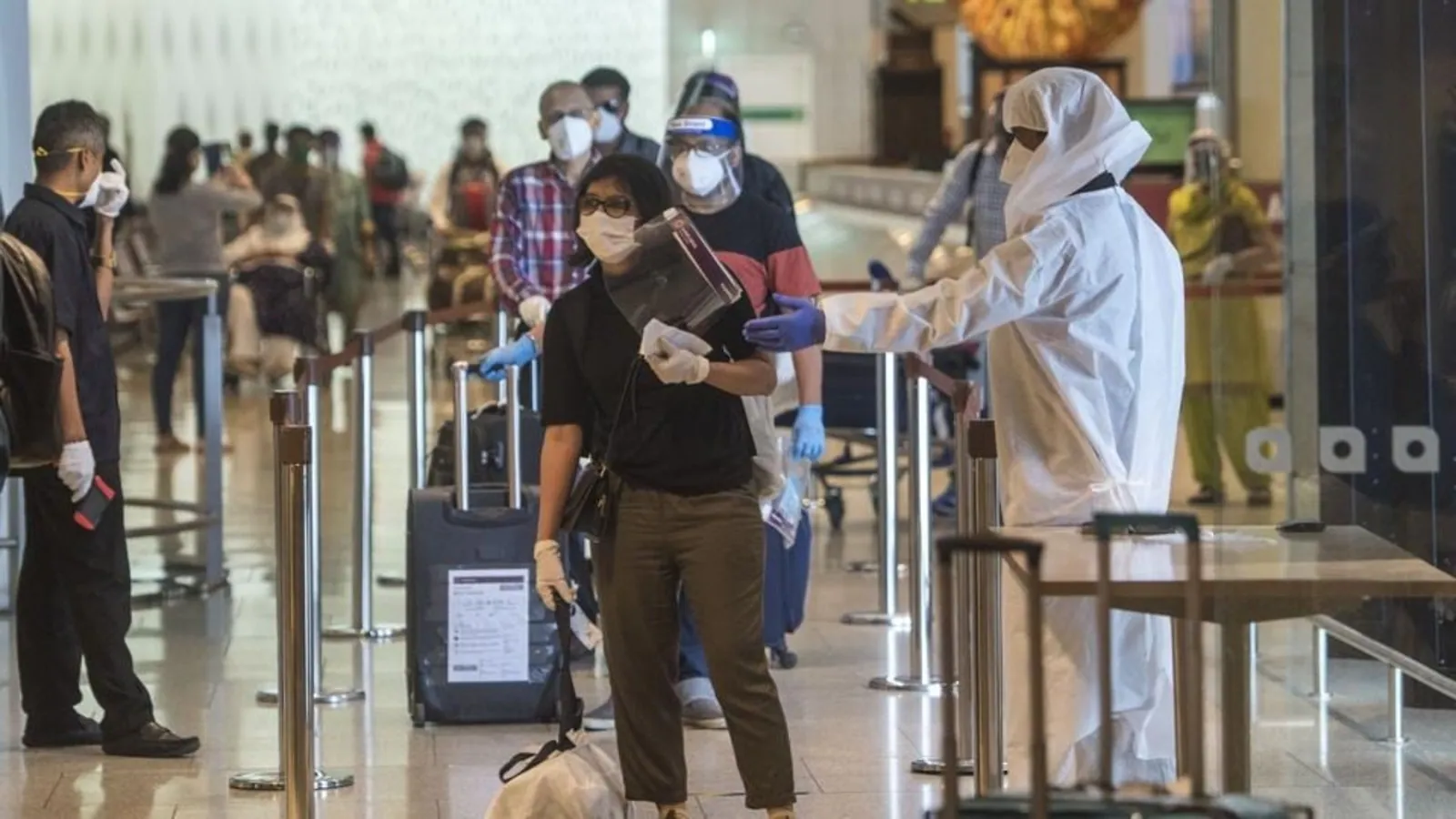On March 22, 2018, an Airbus A320 operated by Alitalia experienced a Covid explosion on board. The explosion caused significant damage to the aircraft, leading to its emergency landing in Rome. All 223 passengers and crew were safely evacuated from the aircraft.
What is the COVID?
The COVID-19 outbreak has quickly become a global pandemic, with cases of the virus being reported in almost every country around the world. The virus is believed to have originated from animals and was first detected in Wuhan, China back in December 2019. Since then, it has spread rapidly across borders and caused widespread panic and concern among people everywhere.
Recently, news broke out of an explosion of COVID-19 cases on a flight from Italy. It is believed that several passengers on board were carrying the virus without even knowing it. This highlights just how easily the virus can spread and how important it is for everyone to take precautions such as wearing masks, practicing social distancing and washing hands regularly.
The situation serves as a stark reminder that we must all remain vigilant in our efforts to curb the spread of this deadly virus. While vaccines are now available, they are not yet widely accessible across many parts of the world so we must continue doing what we can to protect ourselves and others from infection.
What are the risks of flying with COVID?
The risks of flying with COVID-19 have become a concerning issue for travelers all around the world. The recent explosion of cases on a flight from Italy has only added to these concerns. While airlines are implementing various measures, such as mandatory mask-wearing and enhanced cleaning protocols, the risk of contracting the virus while flying still remains.
One of the main concerns is that airplanes are enclosed spaces with limited ventilation. This can create an environment where respiratory droplets containing the virus can spread easily between passengers, even if they are seated far apart. Additionally, long flights increase the chances of exposure and transmission as passengers spend extended periods in close proximity to others.
Another factor that adds to the risk is potential exposure during airport check-in and boarding procedures. Crowded lines and shared surfaces can make it difficult to maintain social distancing and increase contact with potentially contaminated surfaces.
Overall, there is no denying that flying during a pandemic comes with inherent risks due to the nature of air travel itself. However, by taking necessary precautions such as wearing masks, washing hands frequently or sanitizing them regularly using hand sanitizers, and practicing social distancing within airports as well as inside planes themselves, travelers can minimize their risk while still being able to travel if necessary.
Also Read: rajkotupdates.news : pubg developer Krafton has filed a lawsuit against garena free fire
What is the latest news on the COVID outbreak?
Recently, there has been news of a COVID outbreak on a flight from Italy. According to reports, at least 16 passengers who were on the flight have tested positive for the virus. The flight was carrying around 200 people and had landed in Hong Kong earlier this month. As a result of this outbreak, authorities have quarantined all the passengers who were on the flight.
This incident highlights how easily the virus can spread, even on flights where precautions are taken. It serves as a reminder that we must continue to take necessary precautions to prevent the spread of COVID-19. It is important to wear masks in public spaces, practice social distancing, and frequently wash our hands with soap and water or use hand sanitizer.
Although vaccines are being rolled out worldwide, it is still crucial to remain vigilant in our efforts to contain the virus until enough people have been vaccinated. News like this emphasizes that there is still much work to be done in controlling COVID-19 outbreaks globally.
How did this outbreak happen?
The COVID-19 outbreak is believed to have originated in Wuhan, China in December 2019. However, the virus quickly spread across the world and became a global pandemic. In February 2020, Italy emerged as one of the worst-hit countries with a high number of cases and deaths. It was later revealed that one major cause of the outbreak in Italy was an infected passenger who traveled on a flight from Wuhan to Milan.
The passenger had no symptoms during the flight but tested positive for COVID-19 upon arriving in Italy. This sparked an explosion of cases throughout the country, leading to widespread lockdowns and travel restrictions. The incident highlighted how easily COVID-19 can be transmitted through air travel and how important it is for airlines to implement strict safety protocols.
Since then, governments around the world have implemented various measures such as mandatory quarantine periods and testing requirements for travelers entering their countries. Despite these efforts, there have been several other outbreaks linked to air travel throughout the pandemic. As we continue to learn more about this virus, it’s important that we take all necessary precautions when traveling to minimize its spread.
Also Read: rajkotupdates.news : government may consider levying tds tcs on cryptocurrency trading
What are the consequences of the COVID outbreak?
The COVID outbreak has had far-reaching consequences that have impacted virtually every aspect of our daily lives. One of the most significant consequences of the pandemic has been the impact on travel and transportation. In a recent example, an explosion in COVID cases was reported on a flight from Italy, where several passengers tested positive for the virus. This situation highlights how quickly the virus can spread, even in controlled environments such as airplanes.
The impact of this outbreak extends beyond just those who were on board that flight; it also affects anyone who may have come into contact with those passengers upon their arrival at their destination. The rapid spread of COVID-19 has resulted in strict quarantine measures being implemented worldwide to prevent further transmission. These measures have led to economic disruption and job losses across many industries.
In addition to its effects on travel and employment, the COVID outbreak has also highlighted issues related to public health infrastructure and preparedness. Many countries have struggled to keep up with testing demands or provide adequate care for patients infected with the virus. As we continue to navigate this pandemic, it will be essential to address these challenges and prioritize investments in public health systems globally.
Conclusion
In conclusion, the COVID explosion on a flight from Italy highlights the importance of adhering to strict health protocols and travel restrictions during this pandemic. The incident serves as a reminder that even with measures in place, such as mandatory mask-wearing and social distancing, there is still a risk of transmission. It also underscores the need for continued vigilance in monitoring and containing outbreaks.
Additionally, this event emphasizes the role of individual responsibility in preventing the spread of COVID-19. Passengers who knowingly or unknowingly exposed others to the virus by traveling despite feeling ill or not following guidelines may have contributed to the outbreak. As such, it is crucial for individuals to prioritize public health over personal convenience when making decisions about travel or other activities.
Moving forward, it is important for governments and airlines to continue implementing effective measures to minimize the risk of transmission during air travel. This includes regular disinfection of planes, enforcing mask mandates and social distancing measures, screening passengers for symptoms before boarding flights, and limiting non-essential travel where possible. By working together and taking necessary precautions, we can help prevent future outbreaks like this one on flights from Italy.
Also Read: rajkotupdates.news : the ministry of Transport will launch a road safety navigation app








